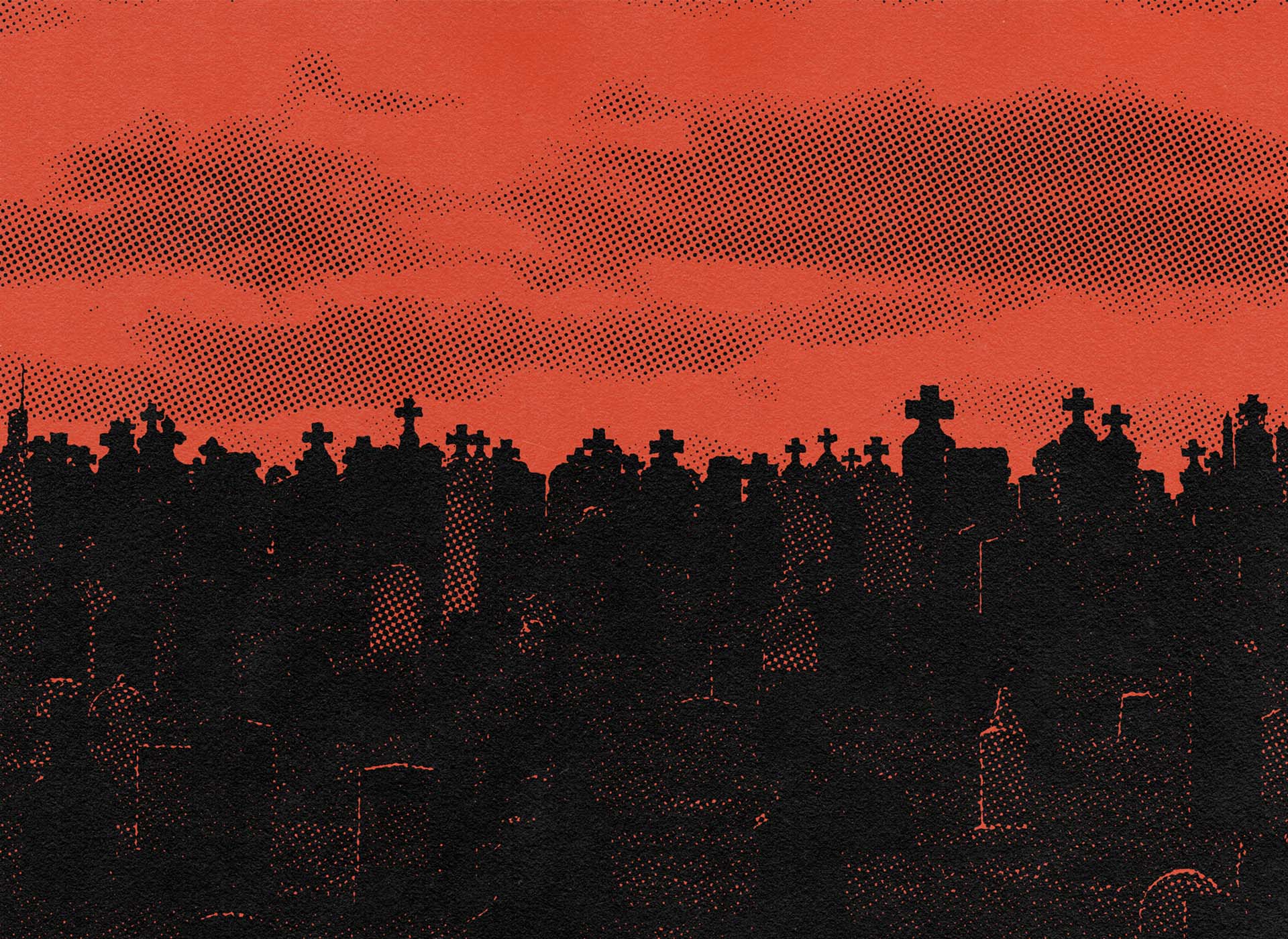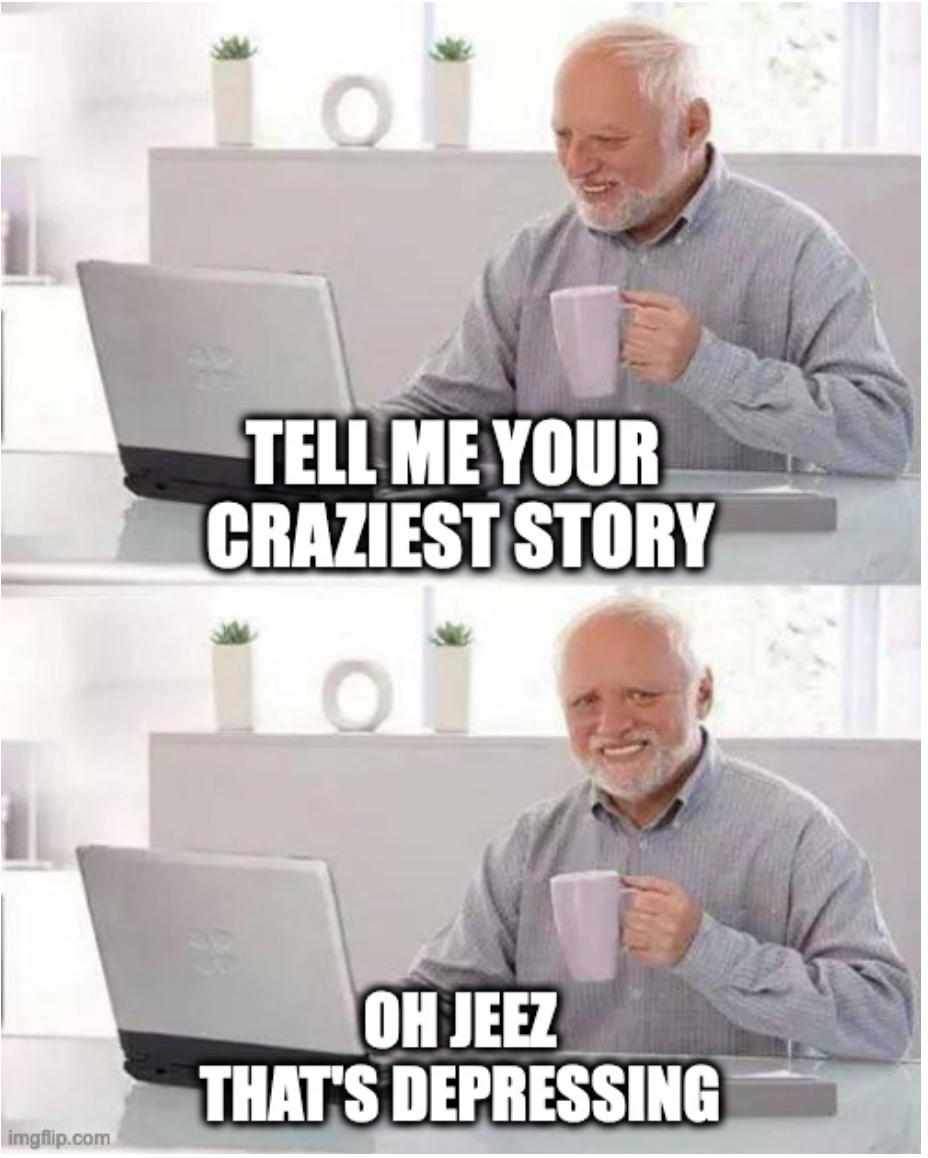
Tales from the ER #7
Awkward Interactions with Boomers Prompt Reflections
Boomers often ask me, “What’s the craziest thing you’ve ever seen in the ER?”
Boomers are looking for a real-life Dr. House story, where I put the pieces of a medical puzzle together and miraculously save someone’s life. Sure, I have one or two of those stories, but truthfully the craziest things I’ve seen are also the darkest and the saddest. Younger people I talk to know better than to ask for crazy ER stories. They know if you measured society by its lowest common denominator that sociologists would spend all their time in the ER. In the ER you cannot hide from our current reality.
Upon hearing what I do for a living, Boomers also say awkward things like, “I bet you’ve seen a lot of people die.”
I don’t know how to respond to that comment without sounding like a sociopath. The truth is I lost count a long time ago of how many people I’ve seen die or pronounced dead. Death stopped being a notable event for me a long time ago. No better way to buzzkill an evening than to say something like that.
I wasn’t a naïve idiot when I chose ER as my specialty. I knew death was part of the package, and so I view my role in those deaths as that of a professional. It’s my foremost duty to prevent death when possible. Unfortunately, for some patients it turns out to be their day to go with God. It’s my place to tell the family what we did to try and help the patient, and of course to express my condolences. It is NOT my place to cry and impose extra grief onto a family who has just lost their loved one.
Yet many doctors today cannot help but make everything about themselves, including the death of someone they’ve known for all of 15 minutes. Giving a patient 4 doses of adrenaline and shoving a tube down their trachea does not make them your acquaintance. I think it’s abhorrent that colleagues today are taught to practice the sick art of grieving with the family. If it were me who lost someone I loved, I’d want to know what happened and then I’d want to be left alone.
Given that my approach to death in the ER is now an outlier, I have wondered more than once if I am in the wrong. I’ve since found reassurance in an unlikely place – a book called Breakfast with the Dirt Cult. A beautiful memoir of war and the harsh reality facing young men today, I found Samuel Finlay’s writing to be one of the more accurate depictions I’ve read of seeing death. Specifically, in the section “Winter of Discontent,” the protagonist Tom Walton learns of a US pilot who accidentally shot and killed 9 children.
“ ‘Damn,’ Walton said, thinking there should be something better to say.”
In the ER it’s just like that. Damn. Nothing better to say.
Finlay recounted the real episode behind that part of the book in an interview with BAP. Finlay explained that in the aftermath of the accidental killings, a senior military officer met with the families whose children had been killed. The officer became emotionally incontinent, crying while apologizing to the family who stare back at him without revealing any emotions at all. Finlay speculated as to what the Afghans must’ve been thinking — watching someone with no connection to their family cry and prostrate himself for their loss. It seems ingrained in our current American culture to find any excuse to grieve and mourn, even if our emotions impose on those who need space and time for healing. Don’t get me wrong — I feel for the families. But I also strongly feel that stepping back and letting families deal with death on their own terms is the most respectful way of handling the situation.
Repeatedly watching someone leave this life for the next has changed how I view death. I find that those who talk about death only in reverent terms have not seen many people die. It’s profound and it’s not at the same time. You can see all that in the faces of people after they learn their loved ones are dead. It’s deep grief alternating with the surface-level realization that someone who was there minutes before is now gone.
After reading Breakfast with the Dirt Cult, I’m reassured that I’m not a sociopath. But what I still have not been able to reconcile is whether seeing death repeatedly has somehow affected me personally. As Finlay writes, seeing death: “made Walton feel hollow until anger seeped out.” I don’t feel anger, but I wonder whether I should be feeling something more than I do. Yet every time I begin to think about this, I stop myself. I’m stopped by the thought that maybe it’s not my place to think about my place in other people’s lives and deaths.

